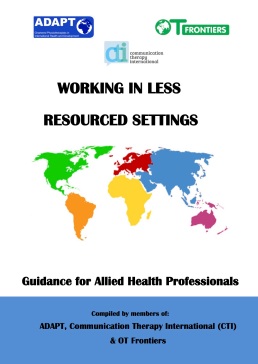Two of our committee members at CTI are presenting a seminar (originally advertised as taking place in June) on Understanding sexual and gender-based violence against refugees with communication disability in Rwanda.
Where: Room 3.20, Brooks Building, Birley Campus, Manchester Metropolitan University
When: from 4pm – 5pm
Book now: https://dpresearchseminarjune17.eventbrite.co.uk
Abstract: This seminar will describe a small project carried out in Rwanda, investigating the challenges facing both refugee-survivors of sexual and gender-based violence (SGBV) who have a communication disability and the humanitarian actors charged with effective and equitable SGBV service provision. Findings from data collection and a literature review*, indicate that refugees with communication disability are unable to access adequate services at all stages of the SGBV support process, from reporting of abuse, to legal redress and medical / psychosocial support, as a consequence of their disability. The presenters will also discuss some of new challenges they experienced working in the humanitarian sector.
*http://www2.mmu.ac.uk/media/mmuacuk/content/documents/hpsc/research/understanding-SGBV-in-refugees-with-a-communication-disability-literature-review.pdf
Dr Julie Marshall
Julie Marshall is a Reader in Communication Disability and Development at MMU. She has 27 years’ experience of working in Africa, helping to design and develop speech and language therapy education programmes, carrying out research, building capacity for research, providing clinical services, and training other professionals.
Helen Barrett
Helen Barrett is a British Speech and Language Therapist and Social Inclusion Advisor, living and working in Rwanda. For the past nine years she has worked with governments, institutions and organisations throughout East Africa to support efforts to improve social outcomes for people with communication and / or learning disabilities. She is currently a part-time consultant, and part-time PhD student at MMU.

